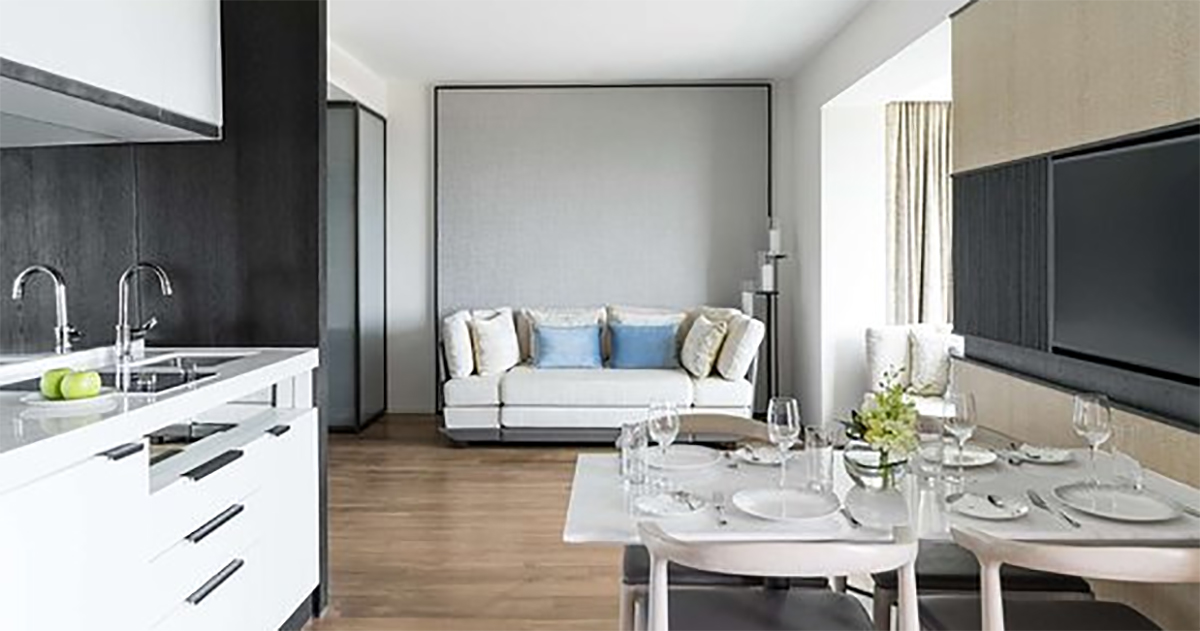An American woman has showered effusive praise on the strict methods adopted by Singapore in its determined effort to keep Covid-19 at bay.
She went as far as saying that if given the choice, she would pick Singapore's approach to mandatory masking, location tracking, and two-week quarantine for those who just arrived here from overseas, over the United States near-free-for-all, liberty-enriched opposition against taking Covid-19 precautions even if it means subsuming the individual temporarily for the greater public good.
The woman, Julie Gerstein, penned her missive in Business Insider on Jan. 28.
Her conclusion was written upfront by the fourth paragraph: "But the reality is that Singapore's lockdown is working, and the American approach to the coronavirus is not."
Likely stayed at Shangri-La Hotel
Gerstein revealed that she and her husband were confined to a one-bedroom 200 sq ft luxury hotel room suite for two weeks after arriving here from overseas.
She wrote: "It's not prison. But it is prisonlike. It's certainly not freedom. We cannot leave."
But not that she minds, because she took pictures to show exactly how swanky and comfortable her temporary residence was.
Based on the photos she posted, she and her husband were very likely staying at Shangri-La Hotel and her room was facing Orange Grove Road.
What she wrote that would trigger some in the west
Her views, which read like nothing much to Singaporeans, are eye-opening for those in the West who are used to treating rules and regulations by the government as mere suggestions.
For example, Gerstein called her Stay-Home Notice period here a "monitored quarantine", calling to mind incarceration-like qualities, as well as mentioning that key cards are programmed to be used only one time, which restricts occupants of rooms from ever leaving them as they will risk getting locked out and caught.
She also posted photos of her regular temperature-taking log, as well as mentioning the mandatory test for the coronavirus on her 11th day stay in the hotel, which would determine whether she can leave after the 14th day rolled around.
Such levels of sophistication when it comes to state monitoring is bound to shock the senses of those never used to any idea of being surveilled, even though there might be legitimate reasons to do so.
Gerstein wrote: "The American belief that personal liberty and freedom trump social responsibility has created a narrative in which personal choice is more important than the public good."
She continued writing regarding this "narrative": "They've been called up time and time again in the arguments about whether coronavirus lockdowns and restrictions impede the American way of life."
Without explaining too much, it can be deduced that her use of the word "trump" is definitely deliberate.
Freedom to be self-defeating
Gerstein also wrote disparagingly about the attitudes of those who supposedly espouse the cause of freedom and liberty back in her home country.
"For proof of that attitude, you can cite any number of lockdown opponents whose commitment to personal freedoms over public health is almost pathological," she wrote.
She cited a BBC article from April 2020 about one person who was protesting lockdowns in Washington state: "The fact I am protesting does not mean I think it is a good idea to have gatherings."
"I just believe that the government has no authority to prohibit them."
Why are Singaporeans okay with Covid-19 rules?
Ultimately, Gerstein recognises the ready acquiescence of Singaporeans: State intervention did not happen overnight but it is a way of life and it is impossible to port over such attitudes to other countries.
She quoted an April 2020 Wired piece by Jerrine Tan.
"Singapore is able to respond quickly and efficiently in times like this because its government has always wielded absolute control over the state, with an iron fist and a whip in it," Tan wrote.
"In times of crisis, when this form of authoritative instruction saves lives, we might call it good. But in order for it to work in times of crisis, one must be willing to always live under this yoke. This, it seems, is the price many Singaporeans are willing to pay."
Why are Americans so resistant to Covid-19 measures?
On the other hand, the cost of American freedom, is ironically, American lives.
Gerstein also wrote: "Singapore has a population of 5.69 million people crammed into an area only slightly larger than New York City. But it has recorded fewer than 59,000 coronavirus cases — and only 29 deaths."
She continued: "Compare that with Los Angeles, a city with 4 million people, which has recorded 611,000 cases and 8,800 deaths."
The concept of "freedom" not only allows a haphazard crisis response, it has minted free passes for the American government, according to Gerstein.
Essentially, "freedom" has allowed the American government "to pretend it's giving you more when it's actually giving you less", Gerstein wrote.
For an American who is now residing in Singapore and removed from her place of origin, Gerstein has established the distance to question the fragility of a cherished American value.
She effectively asked as an American: If freedom is such a foundational American value, then why are we so afraid that it will disappear if we temporarily put the greater good over the rights of the individual?
Because at this rate, the only thing that isn't going away is Covid-19.
You can read her full piece here.
Top photo via
If you like what you read, follow us on Facebook, Instagram, Twitter and Telegram to get the latest updates.
